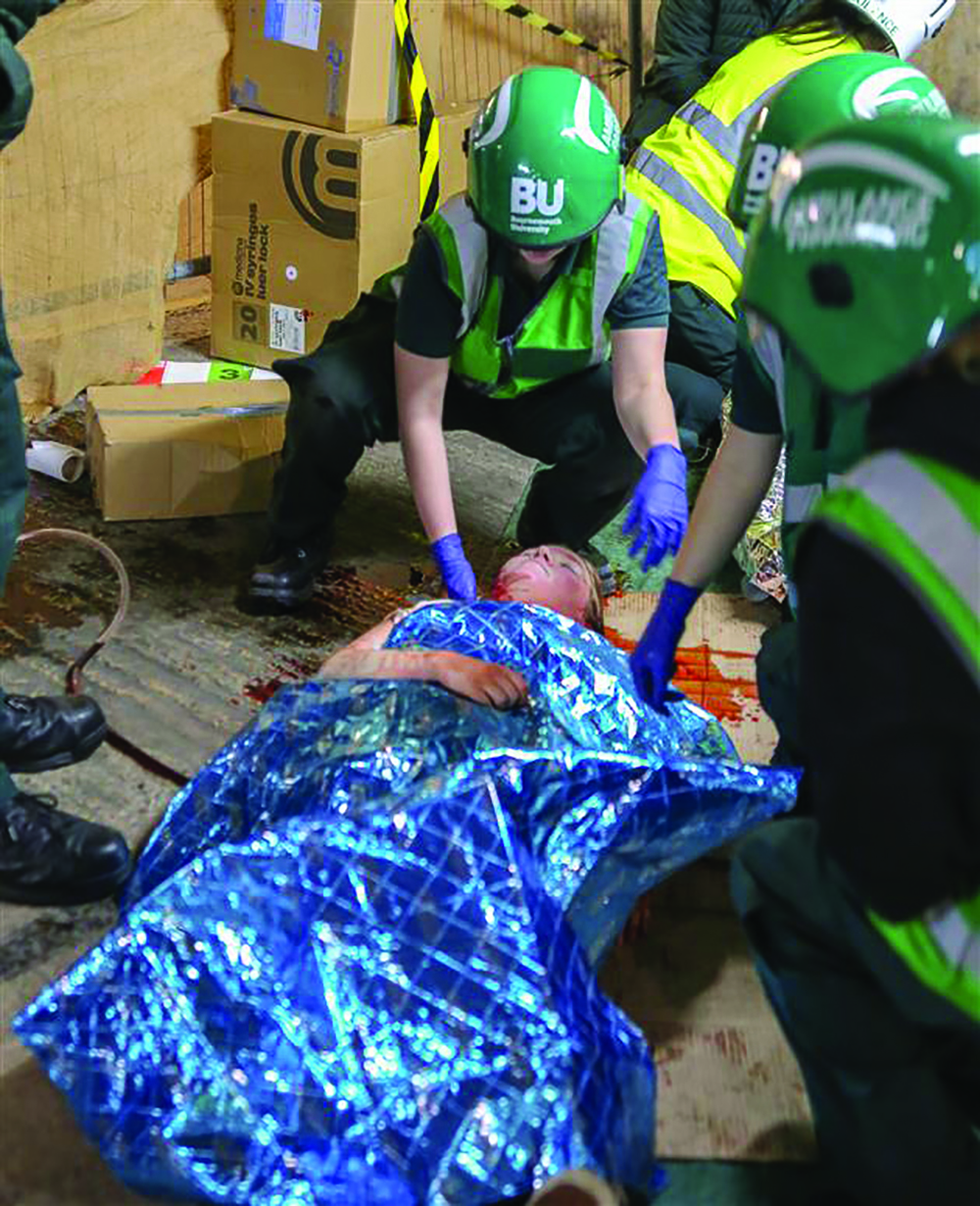
Over 500 interdisciplinary healthcare students from Bournemouth University’s Faculty of Health & Social Sciences took part in a two-day interprofessional simulation event, simulating a major incident: an alien invasion causing organised chaos in an underground car park. Students from multiple healthcare disciplines (Adult, Mental Health, and Children’s and Young People’s Nursing, Paramedic Science, Physician Associates, and Physiotherapy) collaborated with makeup artists from Arts University Bournemouth to create high-fidelity injuries, practicing triage, emergency care and teamwork in a controlled, immersive setting.
The NHS Long Term Workforce Plan highlights simulation as a key strategy to modernize healthcare education, supporting interprofessional education (IPE) and exposure to rare and complex scenarios [1]. Higher Education Institutions (HEI) play a vital role in preparing students to deliver safe, effective and innovative care.
Simulation fosters essential communication, collaboration and decision-making skills, while major incident simulations enhance both technical and non-technical abilities to improve emergency readiness [2]. By promoting IPE, these experiences help build a resilient healthcare workforce equipped to handle major incident events and deliver high-quality patient care [3].
Drawing on our faculty’s interprofessional expertise, we designed clear scenarios with learning objectives, intending to integrate students’ theoretical knowledge and practical skills. Recognizing the potential for emotional responses, we integrated wellbeing staff and hot and cold debriefings. Central to the design was the establishment of a formative, psychologically safe environment, prioritizing participant growth and emotional safety. Planning involved careful consideration of learning objectives and support structures to allow learners to engage fully. This comprehensive approach facilitated reflection, iterative improvements and a supportive environment for learning from challenging experiences (Figure 1).
An educational evaluation, using thematic analysis of student feedback, demonstrated that this major incident simulation offered valuable realism, hands-on experience and promoted teamwork. Identified challenges, including noise and equipment issues, will inform improvements centred on scenario variety, multidisciplinary collaboration, and optimised resources. The limitation of primarily discipline-specific teams will be addressed through future focus on experiential learning to underpin and fully integrate IPE with the inclusion of the remaining disciplines in our faculty, for a more holistic, collaborative educational experience.
This evaluation demonstrates that a major incident simulation effectively builds key skills for interprofessional healthcare students. Realism was valued; noise levels and equipment access were challenges. Future improvements developed with our interprofessional partners will optimize debriefing and IPE, aligning with the NHS Long Term Workforce Plan [1].
As the submitting author, I can confirm that all relevant ethical standards of research and dissemination have been met. Additionally, I can confirm that the necessary ethical approval has been obtained, where applicable
1. NHS. NHS Long Term Workforce Plan. NHS; 2023.
2. Ledbury J, Pike K, McLellan S, et al. Learning From Simulating Mass Casualty Events: A Systematic Search and a Comprehensive Qualitative Review. Disaster Med Public Health Prep. 2022;16(5):1897–1907.
3. Xavier J, Brown D. Interprofessional Education in a Simulation Setting. StatPearls [Internet]. Treasure Island (FL): StatPearls Publishing; 2023 Jan-.
